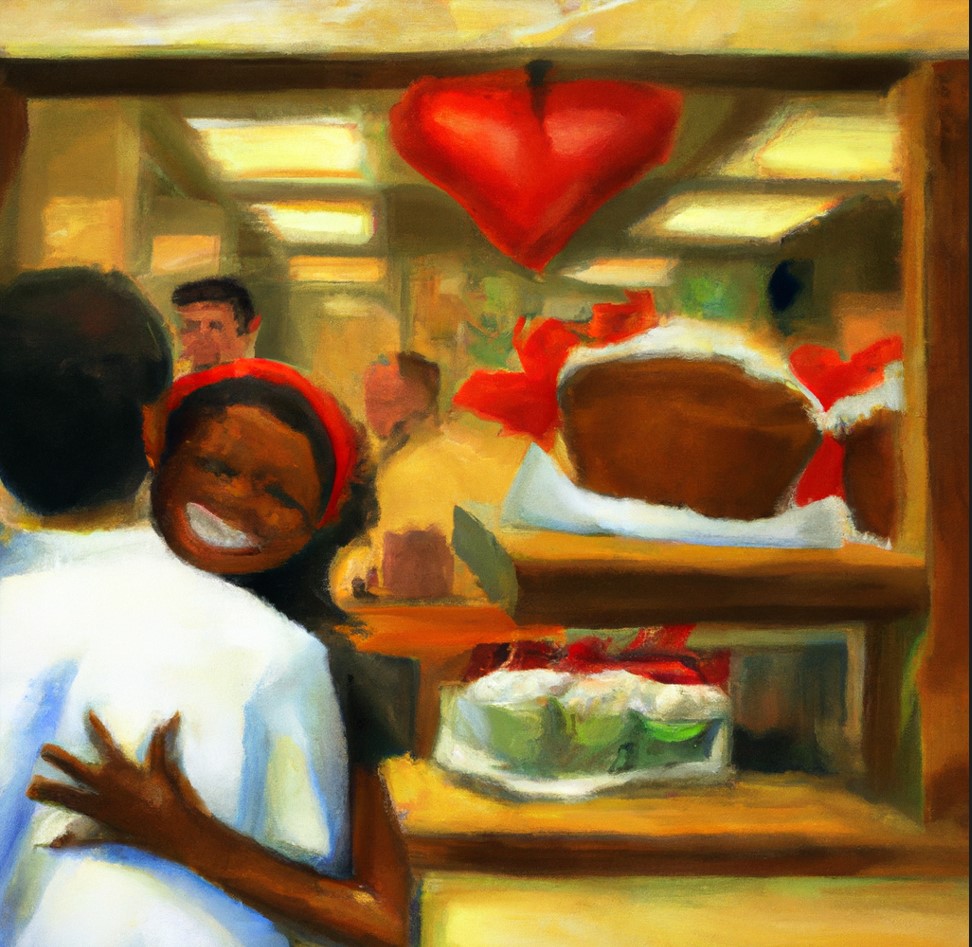Valentine’s Day: All You Need Is Love
By Ellie Goodwin
It is clear that Valentine’s Day has cemented itself as a day to be celebrated in Korea and with more fervor than other Western derived holidays, such as Halloween. In Korea, it is customary for women to give chocolate on February 14, a gesture which is then reciprocated by men a month later on a day known as “White Day.”
“I was surprised to find out that Valentine’s Day was celebrated here – I thought it was just a Western thing,” said Sarah Tisdall.
In fact, the 14th of each month marks a romantic celebration between couples in Korea, such as Green Day in August, Wine Day in October, and Hug Day in December, with February 14 being the most important date on the calendar for people in relationships. Unfortunately, the meaning of the day is somewhat lost to consumerism, with many choosing to lavish one another with extravagant gifts.
Those choosing to celebrate Valentine’s Day are in a position to reintroduce the true nature of the day, rather than what it has started to become.
Chatting with Gwangju News, Sophia Amchi said, “I celebrate the day with my boyfriend – we don’t do anything over the top – sometimes it’s just something simple like a picnic spread in our apartment. We make presents for each other, too.”
Making your own gifts certainly adds a personal touch, as opposed to a mass-produced, store-bought gift. Spending an exorbitant amount of money on your “valentine” to display your affection is fast becoming a norm. It is a narrative that we need to steer away from. Needless to say, love does not have a monetary value, nor should we try to give it one. The Suwan-based restaurant Baden Baden is a perfect place for couples looking to dine out without breaking the bank, as is Gungjeon (궁전), a downtown bakery.
“Me and my sister always gave cards to each other. We were taught that Valentine’s Day was about showing love – doesn’t matter if that’s for a boyfriend, girlfriend, relative, or friend. I liked that my parents did it this way – my sister and I argued a lot, so it was nice to be reminded that there were times when we actually really liked each other,” said Eleanor Baumber.

(Gwangju City Blog: https://blog.naver.com/dodreamgj)
Presently, Valentine’s Day in Korea is stubbornly couple-oriented, which does not do justice to the multifaceted nature of love, thus excluding many. Celebrating love in a family setting is equally important. When teaching this to my students, I go to one of my favorite quotes from the classic comedy film Mrs. Doubtfire to help me get my point across: “Some families have one mommy, some families have one daddy, or two families. And some children live with their uncle or aunt. Some live with their grandparents, and some children live with foster parents.”
“I love my friends, and we’ll all go out together – some of us are single, some of us aren’t. We just have a self-care day. I think love for friends is something that is massively undervalued – there’s way too much attention on romantic love.”
Again, there are many different forms of love to be acknowledged on Valentine’s Day, and celebrating love between friends is a great example. The Korean equivalent, Black Day, should be a day to celebrate self-love and friendship but rather is synonymous with being depressed about singledom, as the name would suggest.
Downtown Gwangju and Dongmyeong-dong with its many fancy cafes and various flower shops are just some sure-fire places to show your friends love on Valentine’s Day.
Regardless of your stance on whether the day should be celebrated, it does not change the fact that it is widely commemorated by many. Still, the narrative an individual employs can be given some consideration if, like me, you do not like the present message or want to deviate from conservative standpoints. After all, many Koreans study English as a second language, some with the intention of attending English-speaking universities or temporarily relocating to an English-speaking country for work. Prior knowledge about the culture (be it food, geography, or significant dates) is a useful tool for these individuals. The same can be said for those who have moved to Korea.
“I knew the basics – the basic history of Korea, the holidays celebrated here, the language, the food – that kind of thing. Knowing this kind of stuff beforehand definitely helped me out, but I’ve also learned other random things here, too,” said James Anchor.
Korean society is becoming increasingly diverse, and with this comes a plethora of cultures to be learned about. It invites the chance for other significant dates such as Black History month, Pride, or Mental Health Awareness Days to be acknowledged even though they are, sadly, still overlooked at present.
Regardless of how you interpret the meaning of Valentine’s Day, there are lots of opportunities to celebrate it in Gwangju in a way that suits your own ideals.
The Author
English teacher by trade and keen traveler the rest of the time, Ellie Goodwin has been to 36 different countries, lived in China for over three years, and been in Gwangju about a year. In her free time, she enjoys (you guessed it) traveling, hiking, reading, and the occasional soju. Instagram: @elliee_goodwin




